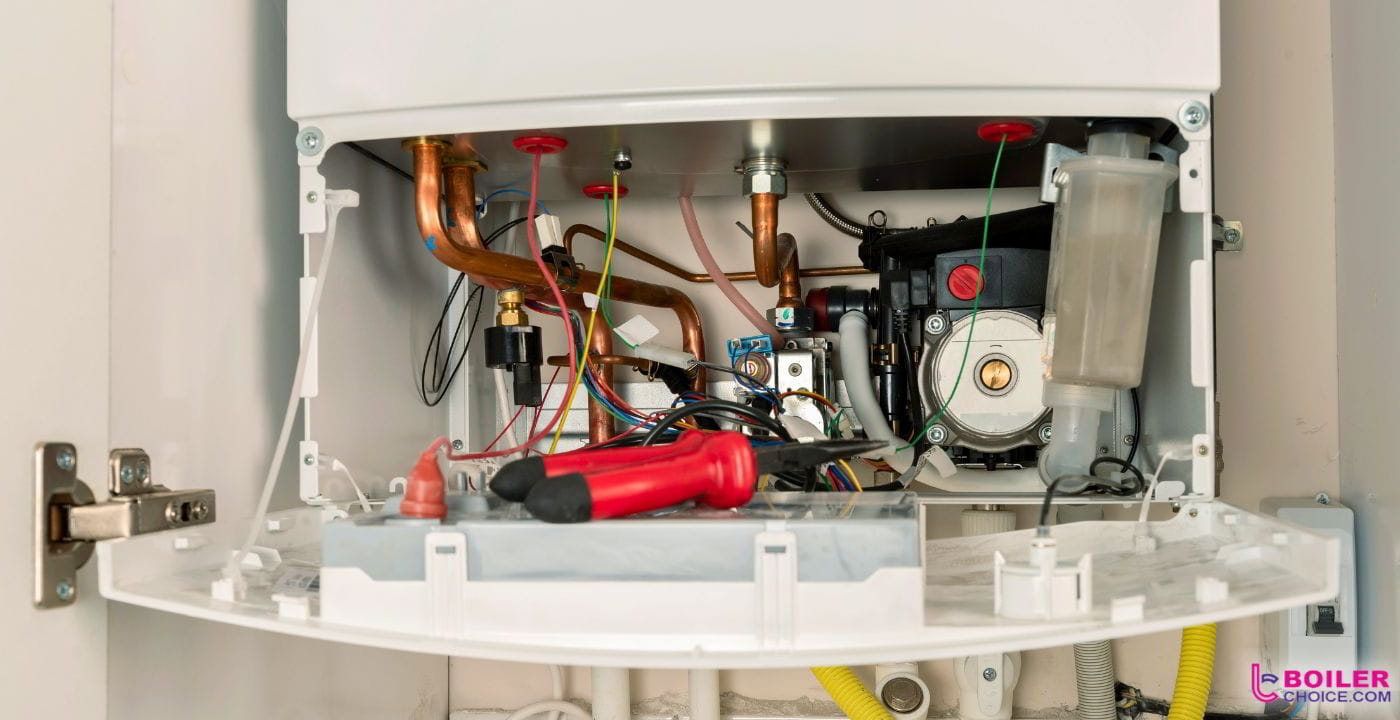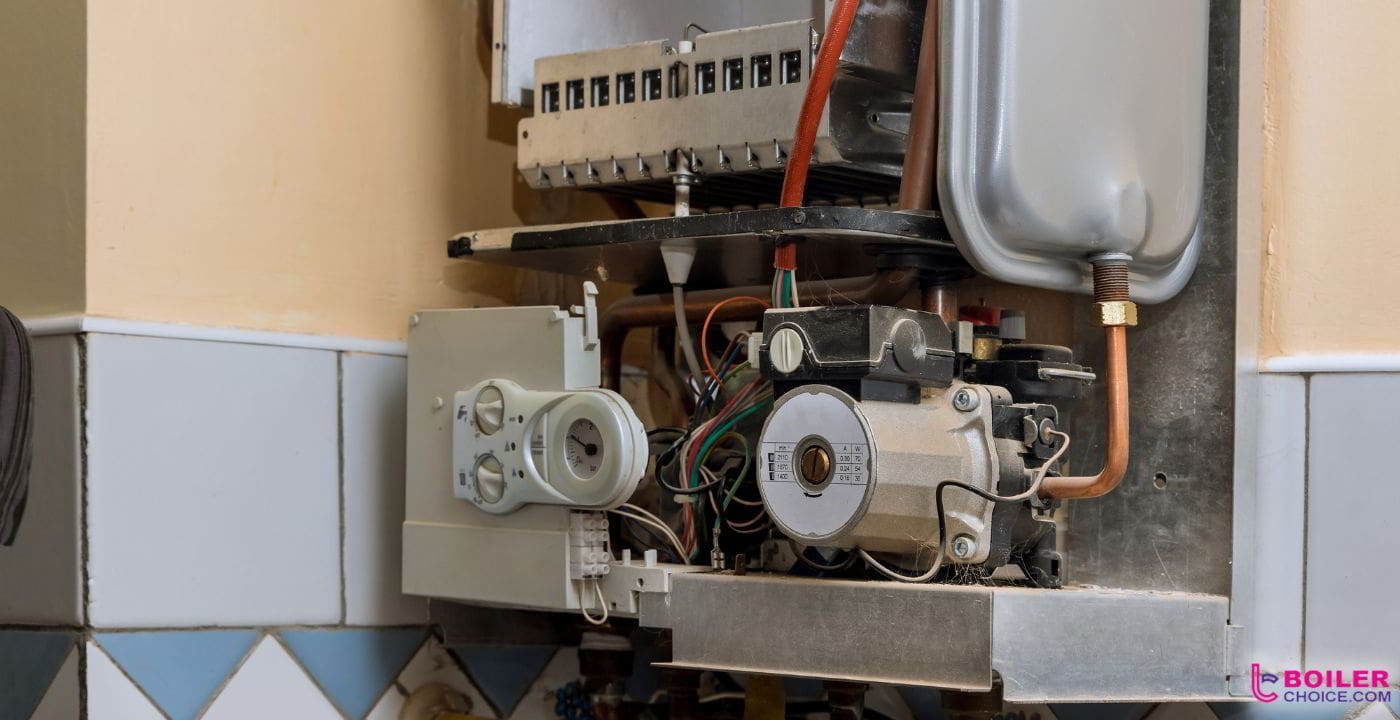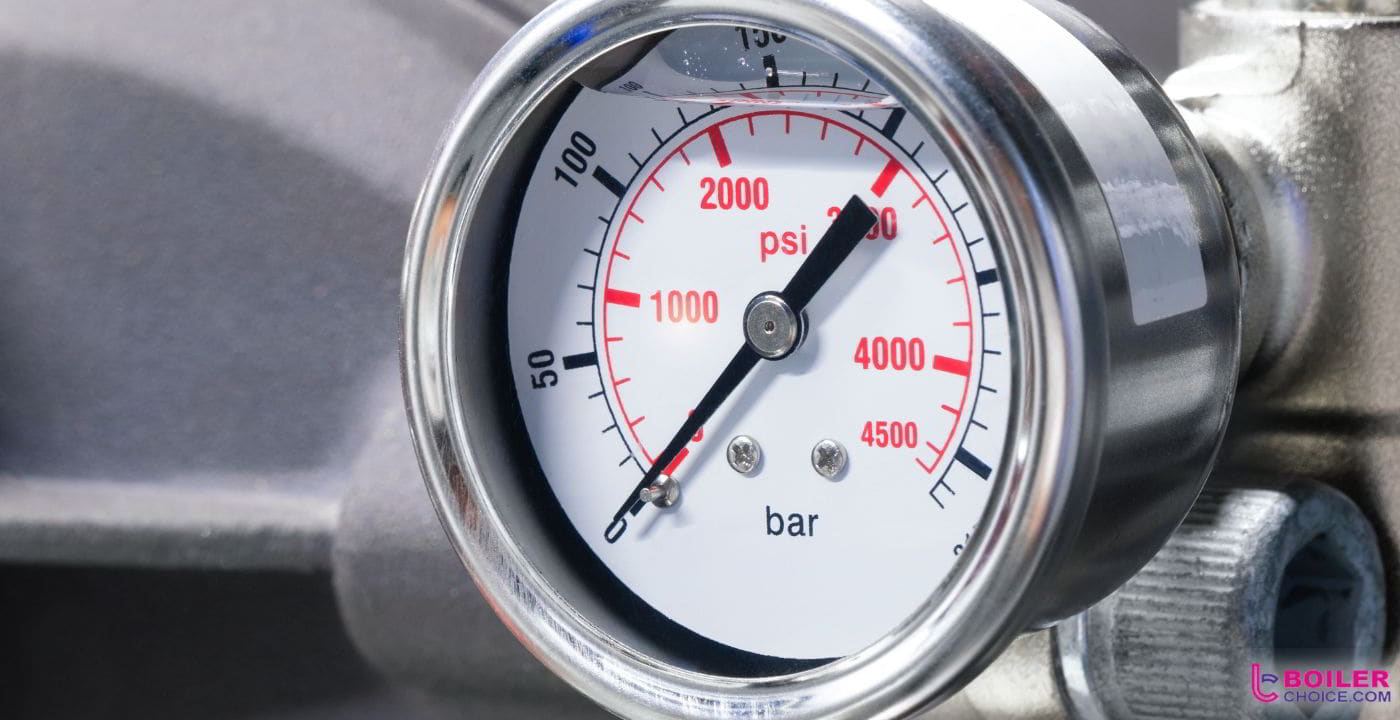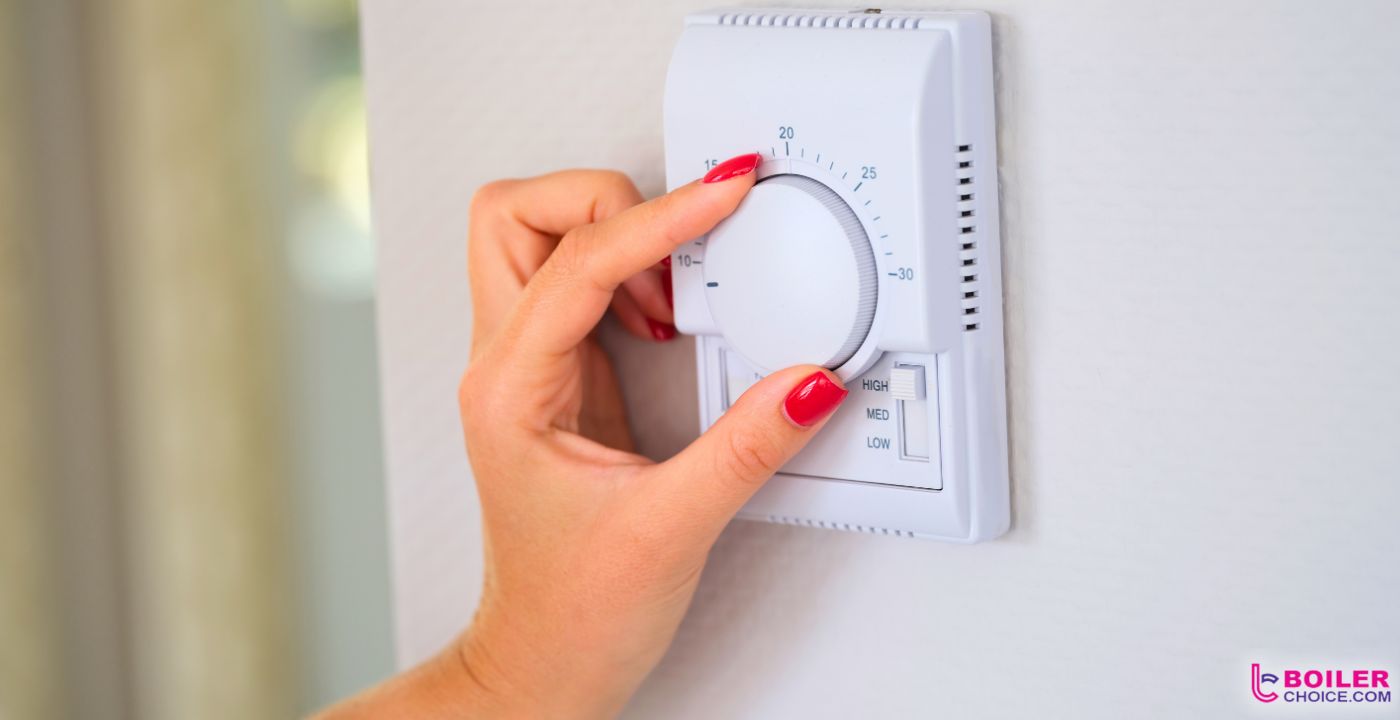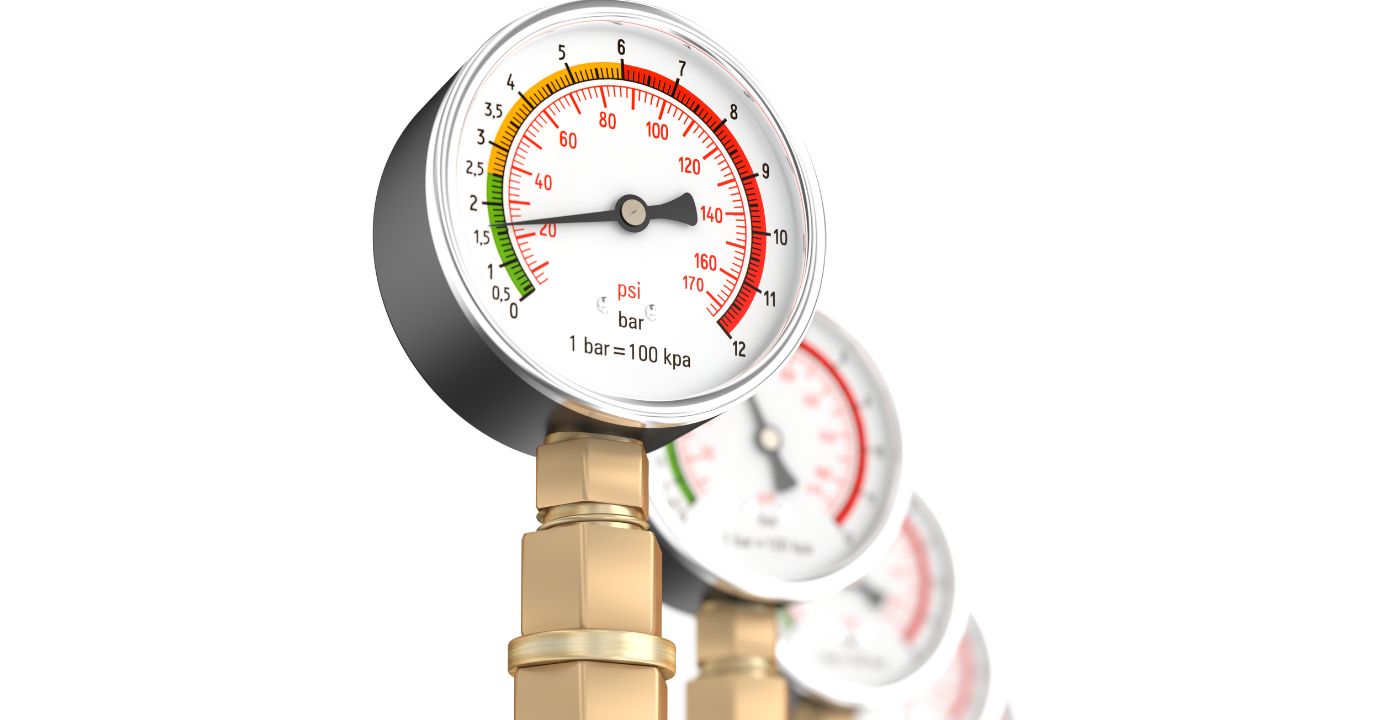
Yes, a boiler can lose pressure without a leak.
While a leak is a common cause of pressure loss, it is not the only reason this problem occurs.
Other potential causes include:
- A failure in the heat exchanger
- Problems with the expansion vessel
- Air trapped in the system
- Bleeding Radiators
In the remainder of this article, we will examine these common reasons why a boiler keeps losing pressure when there are no leaks, and tell you what to do to fix them.
Why Your Boiler Keeps Losing Pressure But Has No Leaks
Heat Exchanger Failure
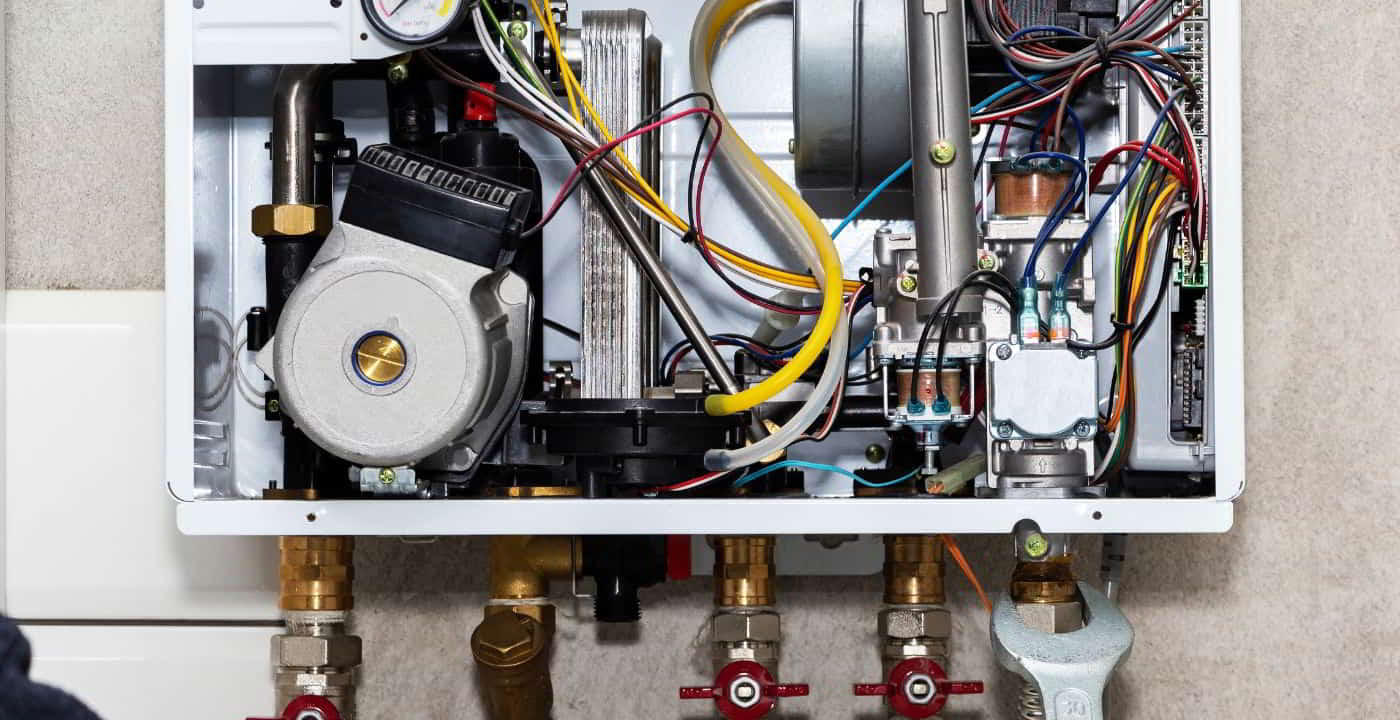
This component is engineered to absorb the increased volume of water that occurs as it warms, ensuring the stable operation of your boiler.
However, if the expansion vessel malfunctions, it loses its capacity to accommodate this expanded volume.
This deficiency can lead to a series of issues, most notably a significant drop in pressure within the system.
This pressure drop can hamper the efficiency and effectiveness of your boiler, leading to potential operational failures and the need for repairs or replacements.
TROUBLESHOOTING
- Inspect for Visual Damage: Look for cracks, corrosion, or leaks on the heat exchanger.
- Check for Blockages: Ensure there are no blockages in the heat exchanger tubes, which can impede heat transfer.
- Examine Seals and Gaskets: Check if the seals or gaskets are intact to prevent leaks.
- Pressure Test: Perform a pressure test to detect leaks or weaknesses in the heat exchanger.
- Look for Irregular Flames and Soot: In gas boilers, irregular flames or soot buildup can indicate a problem.
- Temperature Monitoring: Monitor for uneven heating or unexpected temperature drops.
- Professional Assessment: If in doubt, consult a professional for a thorough inspection and repair.
Faulty Pressure Relief Valve
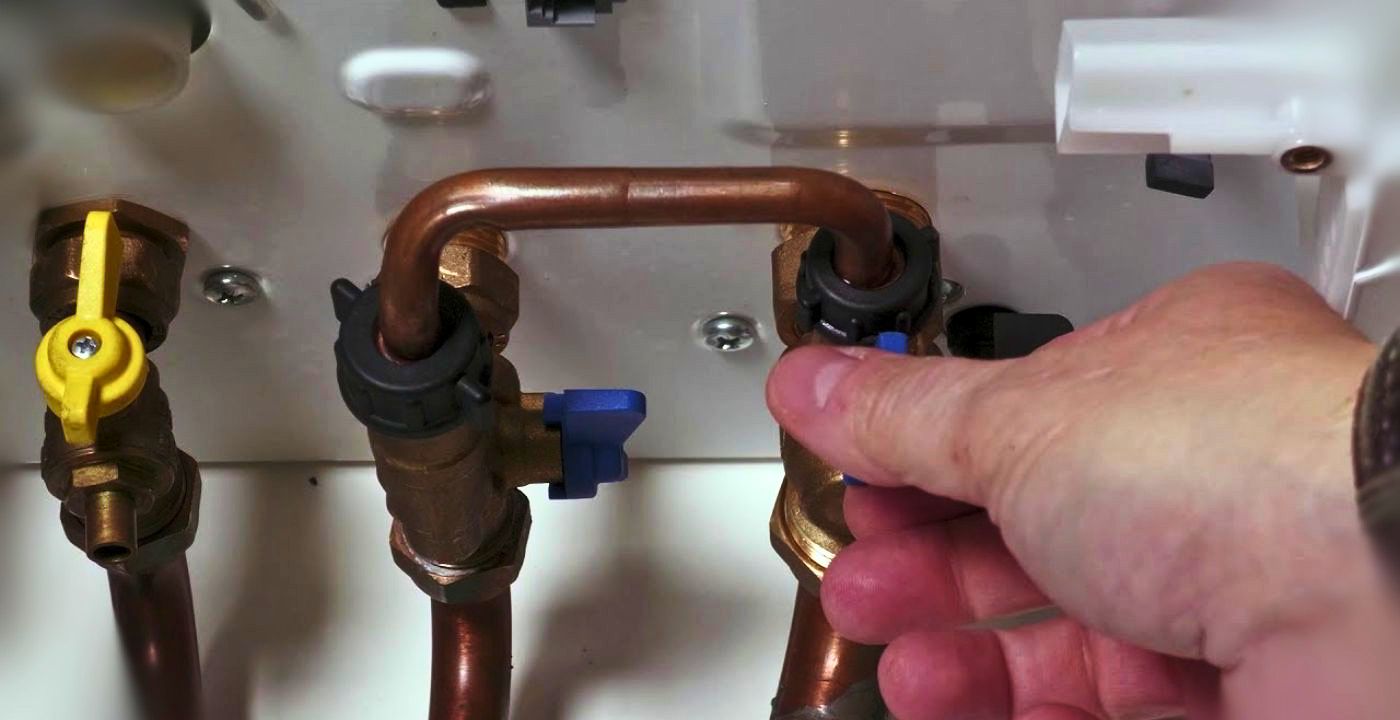
The pressure relief valve (PRV) in your boiler system serves as a crucial safety feature, designed to mitigate the risks associated with excessively high pressure.
By releasing water when the internal pressure surpasses a safe threshold, the PRV ensures the boiler operates within its designed parameters.
However, issues arise when this valve becomes faulty. A malfunctioning PRV may begin to release water prematurely or unnecessarily, even when the pressure levels are within normal ranges.
This inappropriate release of water can result in a consistent drop in the boiler’s pressure, potentially leading to inefficient heating and increased wear on the system.
TROUBLESHOOTING
- Check Valve Setting: Ensure the valve is set to the correct pressure for your boiler system.
- Inspect for Leaks: Look for water or steam leaks around the valve.
- Test Valve Operation: Manually test the valve (if safe to do so) to ensure it opens and closes properly.
- Look for Blockages: Check for any blockage or debris that might prevent the valve from operating correctly.
- Pressure Gauge Check: Monitor the boiler’s pressure gauge to ensure the system isn’t over-pressurized.
- Professional Inspection: If issues persist, consult a professional for a detailed examination and potential replacement of the valve.
Air Trapped in the System
The presence of trapped air within your home’s heating system can be a significant factor leading to pressure loss.
Air can infiltrate the system through various means, including small leaks or during processes like refilling or topping up the system.
Once air enters the system, it can become trapped in critical components such as radiators.
This trapped air can cause uneven heating, noticeable through cold spots in the radiators, and it negatively impacts the system’s efficiency by reducing the overall pressure.
TROUBLESHOOTING
- Bleed Radiators: Open the bleed valves on radiators to release trapped air.
- Check the Pressure Gauge: Ensure the system pressure is within the recommended range after bleeding.
- Inspect for Leaks: Look for leaks in the system, as these can allow air to enter.
- Examine Expansion Tank: Check the expansion tank pressure and condition.
- Purge Air from System: Use the boiler’s air purge valves to remove air from the system.
- Professional Assistance: If problems persist, seek a professional for a comprehensive system inspection and repair.
Bleeding the Radiators

A common solution to fixing low boiler pressure can sometimes also be the cause of the issue. If you suspect you have air trapped in your system and need to bleed you can follow these steps:
How to Bleed Your Radiators:
- Activate Your Central Heating: Turn on your central heating and wait for the radiators to warm up fully.
- Identify Cold Spots: Feel each radiator for cold areas, which suggest the presence of trapped air.
- Switch Off the Heating: Before proceeding, ensure your heating is off to prevent any risk of burns.
- Use a Radiator Key: Obtain a radiator key from a local DIY store. Use this key to gently open the bleed valve on radiators with cold spots. You’ll hear air escaping, indicated by a hissing sound.
- Close the Valve: As soon as water starts dribbling out, promptly close the valve to prevent water spillage.
- Recheck System Pressure: After bleeding, it’s important to check your boiler’s pressure gauge to ensure it’s within the recommended range. If it’s low, you may need to repressurise the system.
However, if you have bled your radiators and are still suffering with low pressure try the following steps:
TROUBLESHOOTING
- Repressurise the System: After bleeding, you often need to repressurize the system using the filling loop.
- Check for Leaks: Inspect the system for any leaks, as they can cause a drop in pressure.
- Examine the Pressure Gauge: Ensure the gauge shows a pressure level within the boiler manufacturer’s recommended range.
- Inspect Expansion Vessel: If your system has an expansion vessel, check that it’s functioning correctly and has the proper pressure.
- Valve Integrity Check: Ensure all valves, especially the ones used for bleeding and repressurizing, are closed tightly.
- Seek Professional Help: If the pressure doesn’t stabilise or if you’re unsure about the process, consult a heating engineer for assistance.
Worcester Boiler Losing Pressure But No Leak
According to Worcester Bosch if there is a loss of pressure with one of their boilers you can easily fix the issue yourself by repressurising the boiler.
Baxi Boiler Losing Pressure But No Leak
According to Baxi, if there is a loss of pressure with one of their boilers and there is no leak, the likelihood is that the boiler is suffering from either
- A blockage in the Pressure Relief Valve.
- The Expansion Vessel needs either recharging or replacing (which must be done by a Gas Safe registered engineer).
Ideal Boiler Losing Pressure But No Leak
Ideal Heating states that if one of their boilers is experiencing low pressure with no obvious signs of a leak, a faulty Expansion Vessel is the most likely candidate.
They advise that you do not refill the central heating system, as the increase in pressure without the safety of an expansion vessel could cause a failure.
Regularly bleeding your radiators and checking the boiler’s pressure gauge can preemptively identify and resolve minor issues before they escalate into major problems.
Frequently Asked Questions (FAQs)
Why does my boiler keep gaining pressure?
There are several reasons why your boiler pressure keeps going up and what you can do to fix the issue.
Most frequently this type of issue is the result of problems with the filling loop, a faulty pressure gauge, a build-up of grime in the system, or expansion vessel issues.
If the boiler pressure is regularly rising to 3 bar or above it could be dangerous and you should take steps to reduce the boiler pressure.
Why does my Glow Worm boiler keep having issues with pressure?
If your Glow Worm boiler is suffering from low pressure chances are you have a leak somewhere in the system. There are a number of fixes you can try – the first of which should be to repressurise the boiler.
How do I fix a Vaillent boiler with low pressure?
Vaillant boilers will show an error code of F22 if the boiler is experiencing low pressure. One of the easiest ways to fix this problem is to open the filling loop and until the pressure returns to the target level of 1.5 bar.
Low Pressure Doesn’t Have To Lead To a Cold Front
As we have seen, a boiler can lose pressure due to factors such as heat exchanger failure, faulty pressure relief valves, having air trapped in the system, or even issues arising from bleeding radiators.
Addressing these problems may involve a range of troubleshooting steps, from repressurising the system to consulting professionals for more complex issues like expansion vessel faults.
Regular maintenance and prompt responses to pressure changes are crucial for efficient and safe boiler operation.
Sometimes, however, persistent low pressure may be signalling that it is time to replace your boiler. If you are suffering from regular pressure issues with your boiler and think it might be time to upgrade, please get in touch.
This blog was written in collaboration with Eddie Scoffin, the founder of Boiler Choice. Eddie has been installing boilers for over a decade. With a passion for excellence and customer satisfaction, Eddie’s leadership and expertise have been instrumental in the success of Boiler Choice. His commitment to making the boiler installation process hassle-free for customers has earned him a respected reputation in the industry.
Updated on December 28, 2023


